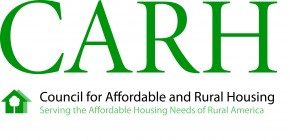- November 2022
- October 2022
- September 2022
- August 2022
- July 2022
- June 2022
- May 2022
- April 2022
- March 2022
- February 2022
- January 2022
- December 2021
- November 2021
- October 2021
- September 2021
- August 2021
- July 2021
- June 2021
- May 2021
- April 2021
- March 2021
- February 2021
- January 2021
- December 2020
- November 2020
- October 2020
- September 2020
- August 2020
- July 2020
- June 2020
- May 2020
- April 2020
- March 2020
- February 2020
- January 2020
- December 2019
- November 2019
- October 2019
- September 2019
- August 2019
- July 2019
- June 2019
- May 2019
- April 2019
- March 2019
- February 2019
- January 2019
- December 2018
- November 2018
- October 2018
- September 2018
- August 2018
- July 2018
- June 2018
- May 2018
- April 2018
- March 2018
- February 2018
- January 2018
- December 2017
- November 2017
- October 2017
- September 2017
- August 2017
- July 2017
- June 2017
- May 2017
- April 2017
- March 2017
- February 2017
- January 2017
- December 2016
- November 2016
- October 2016
- September 2016
- August 2016
- July 2016
- June 2016
- May 2016
- April 2016
- March 2016
- February 2016
- January 2016
- December 2015
- November 2015
- October 2015
- September 2015
- August 2015
- July 2015
- June 2015
- May 2015
- April 2015
- March 2015
- February 2015
- January 2015
- December 2014
- November 2014
- October 2014
- September 2014
- August 2014
- July 2014
- June 2014
- May 2014
- April 2014
- March 2014
- February 2014
- January 2014
President-Elect Biden’s American Rescue Plan
CARH Broadcast Email—Legislative Update
On January 14, President-elect Biden announced a $1.9 trillion COVID-19 relief and economic rescue package entitled, American Rescue Plan – Emergency Legislative Package to Fund Vaccinations, Provide Immediate, Direct Relief to Families Bearing the Brunt of the COVID-19 Crisis, and Support Struggling Communities.
There are three major components to the proposal:
- Mount a national vaccination program, contain COVID-19, and safely reopen schools, including by setting up community vaccination sites nationwide, scaling up testing and tracing, eliminating supply shortage problems, investing in high-quality treatments, providing paid sick leave to contain spread of the virus, addressing health disparities, and making the necessary investments to meet the president-elect’s goal of safely reopening a majority of K-8 schools in the first 100 days.
- Deliver immediate relief to working families by sending $1,400 per-person checks to households across America, providing direct housing and nutrition assistance, expanding access to safe and reliable childcare and affordable healthcare, increasing the minimum wage, extending unemployment insurance, and giving families with kids and childless workers an emergency boost this year.
- Support communities that are struggling in the wake of COVID-19 by providing support for the hardest-hit small businesses, especially small businesses owned by entrepreneurs of color, and protecting the jobs of the first responders, transit workers, and other essential workers we depend on.
The plan provides $25 billion in rental assistance for low- and moderate-income households who have lost jobs during the pandemic. That is in addition to the $25 billion lawmakers provided in December. Another $5 billion would be set aside to help struggling renters to pay their utility bills. The plan extends the federal eviction moratorium, set to expire at the end of January, to September 30, as well as allow people with federally-guaranteed mortgages to apply for forbearance until September 30, 2021.
CARH, together with other affordable housing groups, will work with President-Elect Biden’s transition team on the development of proposals that will also include rural communities and residents who live in these communities. The plan released this past Thursday will need to be vetted by the Congress and appropriate committees that are responsible for drafting legislative language. CARH together with other affordable housing groups sent a letter to President-elect Biden regarding the proposal announced yesterday.
During this continuing crisis CARH staff, executive committee, board members, and members will continue to work with stakeholders and key lawmakers to find the best ways to support all rural communities. Join industry insiders at CARH’s virtual Midyear Meeting January 25-26, 2021, where sessions addressing how this massive legislative package will impact owners, residents, and properties throughout rural America will be discussed. Click here for an agenda of the meeting and click here to register now.





